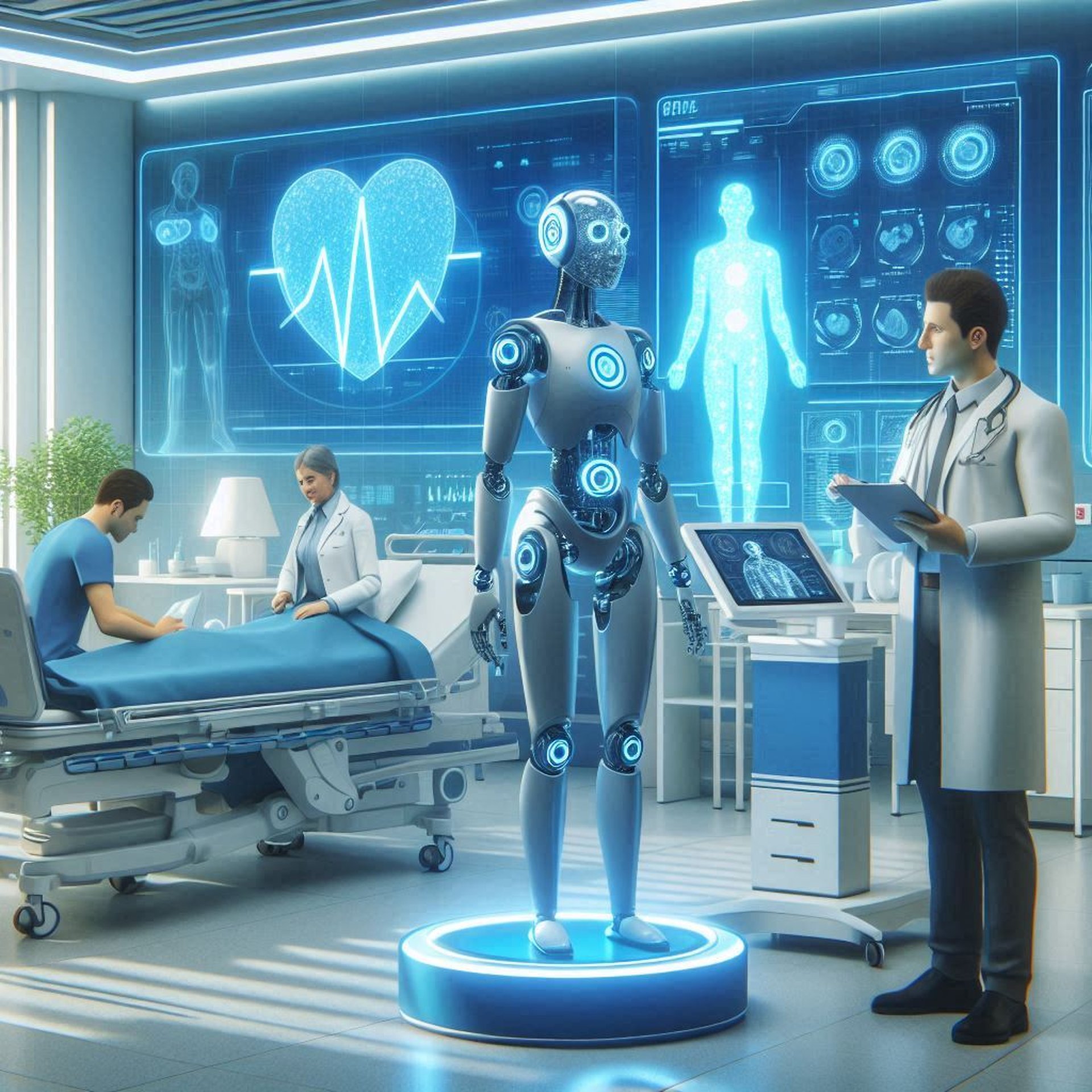AI in Healthcare
9/9/20242 min read

My post content
Artificial intelligence (AI) is making significant strides in revolutionizing healthcare. Let’s explore how AI is being used and the benefits it brings to both healthcare professionals and patients:
Diagnostic Assistance:
AI algorithms can analyze medical images (such as X-rays, MRIs, and CT scans) with remarkable accuracy. In some cases, computers can even outperform human radiologists in detecting abnormalities1. This capability speeds up diagnosis and ensures early intervention.
For instance, AI-powered mammography systems assist in breast cancer detection by identifying subtle patterns that might be missed by the human eye.
Predictive Analytics:
AI models analyze large datasets to predict disease outbreaks, patient readmissions, and potential health risks. These predictions help healthcare providers allocate resources effectively and improve patient outcomes.
In public health, AI can track patterns of infectious diseases, monitor vaccination coverage, and identify at-risk populations.
Personalized Treatment Plans:
AI considers individual patient data (genetics, medical history, lifestyle) to recommend personalized treatment options. This tailoring enhances treatment effectiveness and minimizes adverse effects.
For example, AI-driven precision medicine identifies optimal drug dosages based on genetic variations.
Drug Discovery and Development:
AI accelerates drug discovery by analyzing vast chemical databases and predicting potential drug candidates. It identifies molecules with desired properties, streamlining the research process.
Researchers use AI to simulate drug interactions, predict side effects, and optimize drug formulations.
Natural Language Processing (NLP):
NLP enables chatbots and virtual assistants to interact with patients, answer queries, and schedule appointments. These AI-driven interfaces enhance patient engagement and streamline administrative tasks.
Imagine a friendly chatbot helping you find a nearby clinic or explaining medication instructions.
Administrative Efficiency:
AI automates administrative tasks like billing, coding, and appointment scheduling. This frees up healthcare staff to focus on patient care.
Additionally, AI-driven predictive analytics can optimize hospital bed utilization and resource allocation.
Remote Monitoring and Telehealth:
AI-powered wearables and remote monitoring devices track vital signs, detect anomalies, and alert healthcare providers. Patients can receive timely interventions without frequent hospital visits.
Telehealth platforms use AI for virtual consultations, making healthcare accessible to remote or underserved areas
Research and Clinical Trials:
AI analyzes research papers, clinical trial data, and patient records to identify trends, potential treatments, and areas for further investigation.
Researchers can sift through vast amounts of information efficiently, leading to faster scientific advancements.
Ethical Considerations:
As AI becomes more integrated, ethical questions arise. How do we ensure transparency, fairness, and privacy in AI-driven decision-making?
Striking the right balance between human judgment and AI assistance is crucial.
In summary, AI in healthcare holds immense promise. It’s not about replacing healthcare professionals but augmenting their capabilities. As we continue to explore this frontier, collaboration between AI and human expertise will shape a healthier future for all of us!
Support
Connect
nandhinibt49@gmail.com
